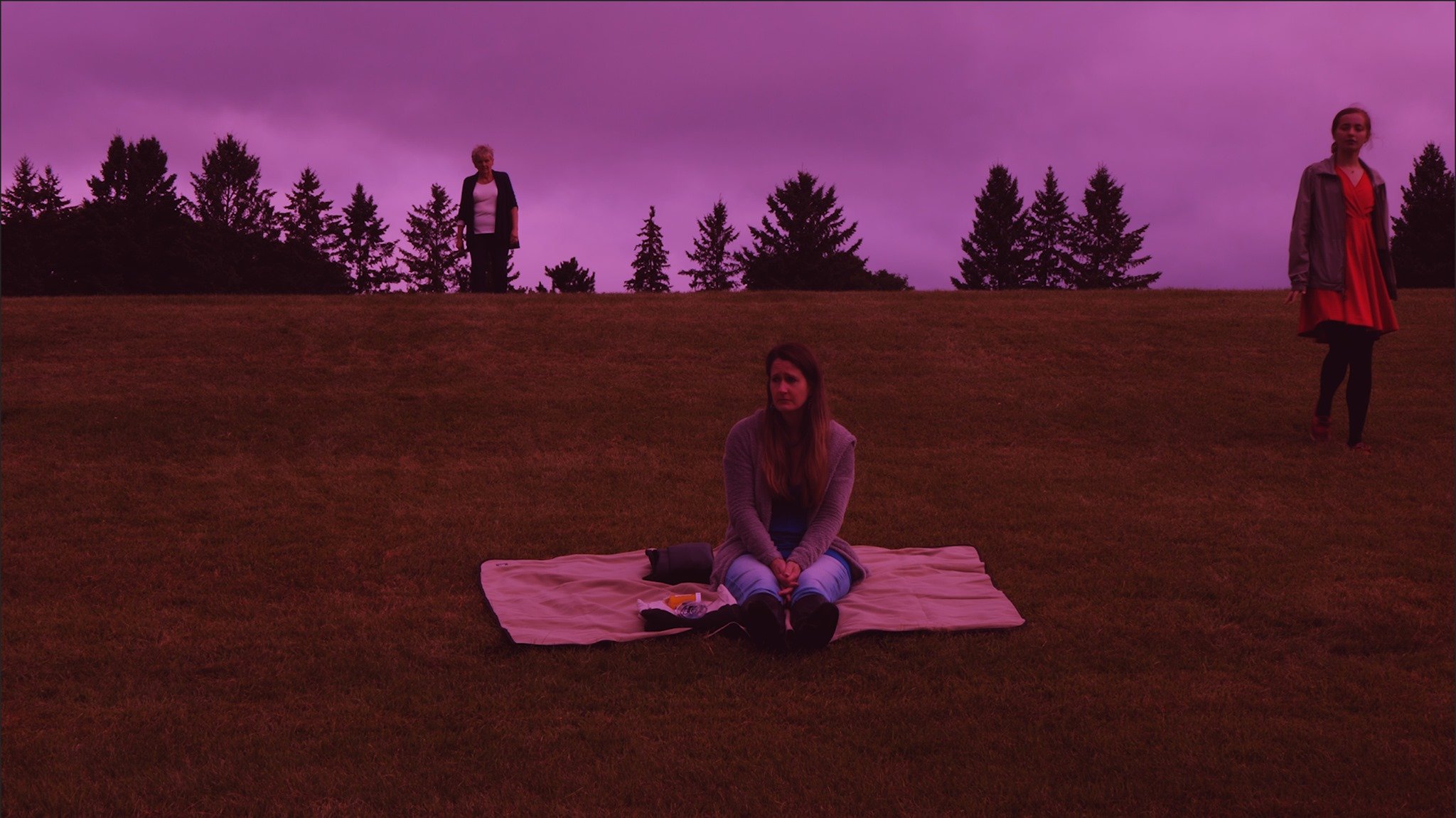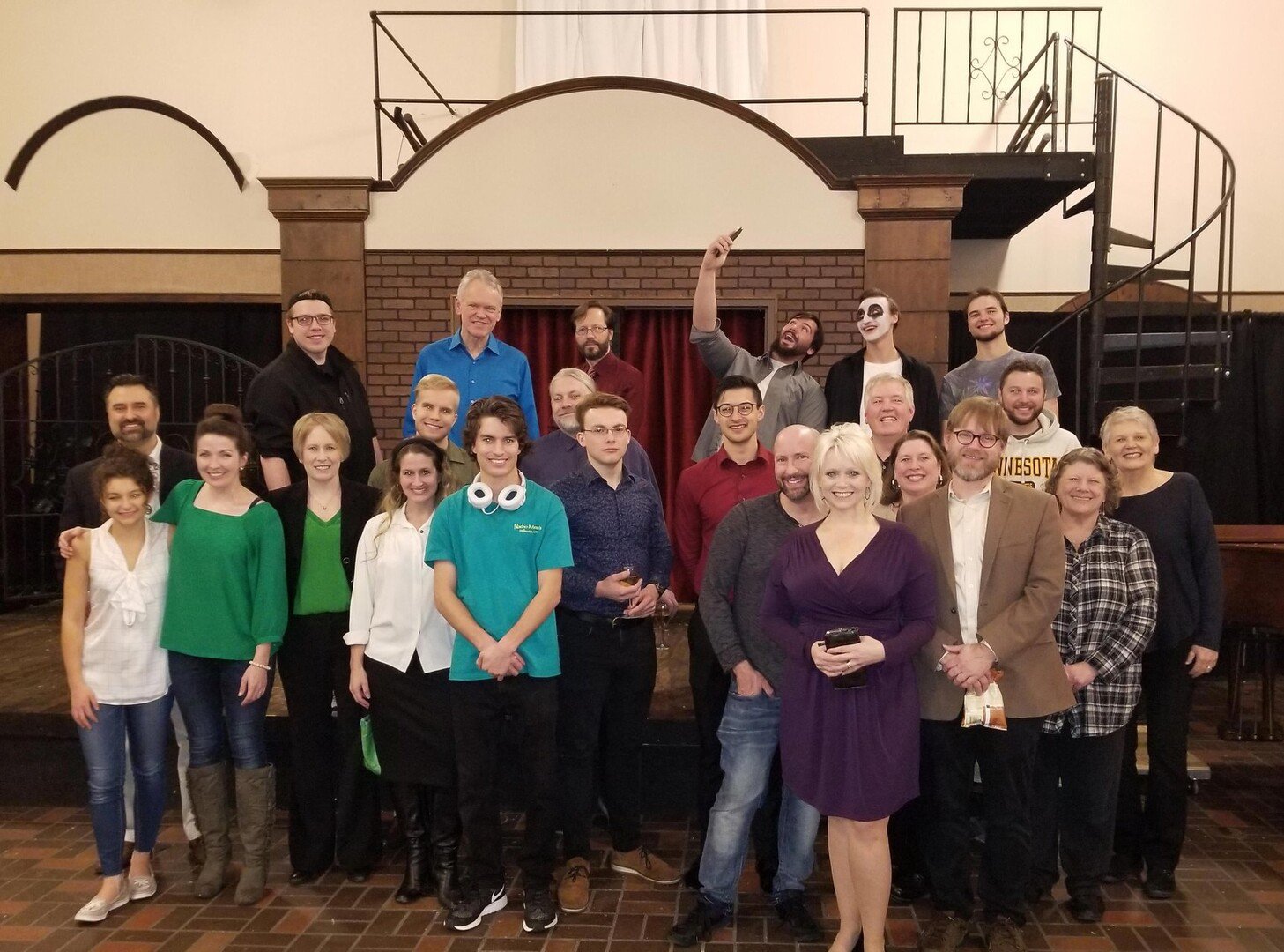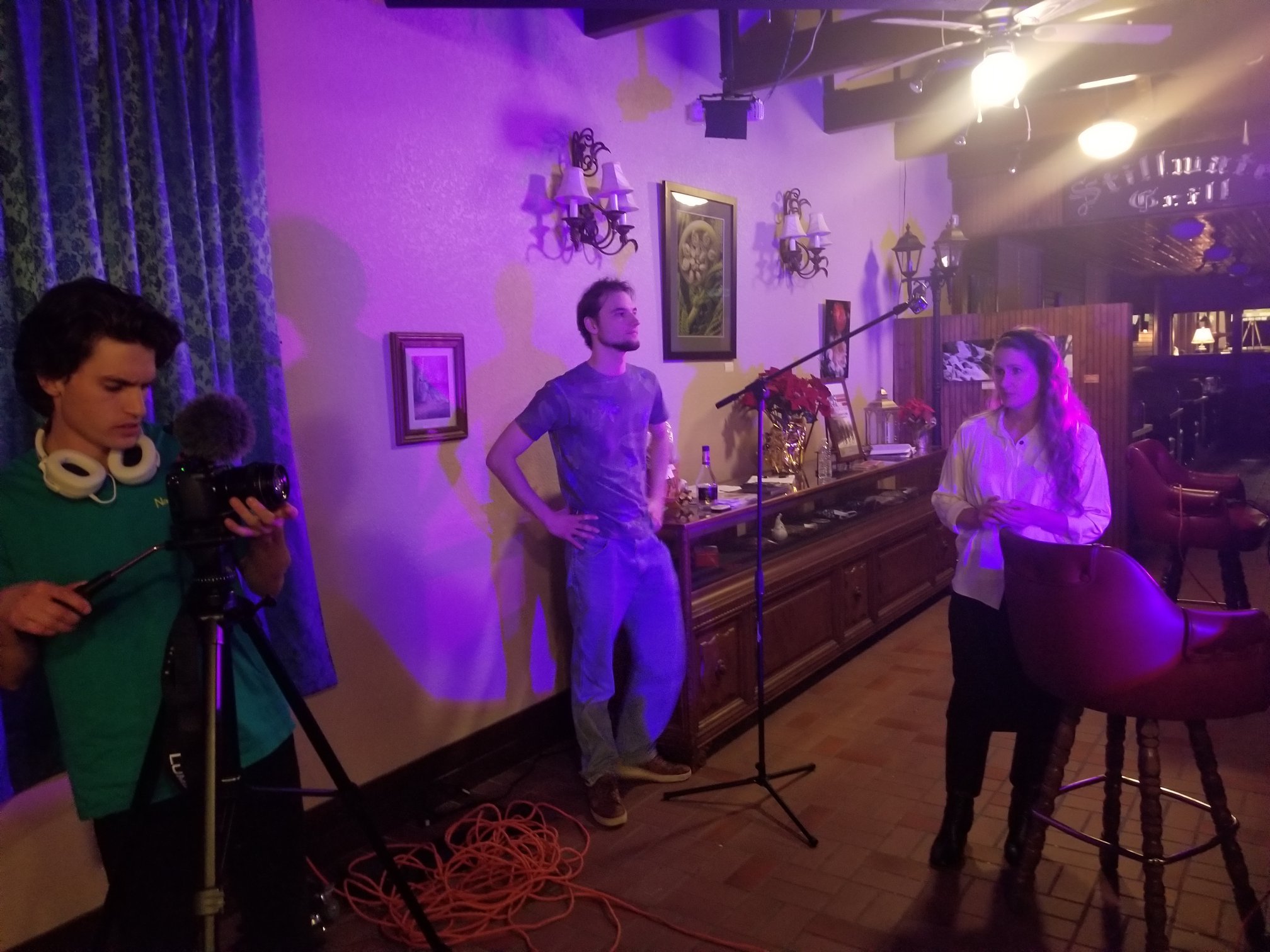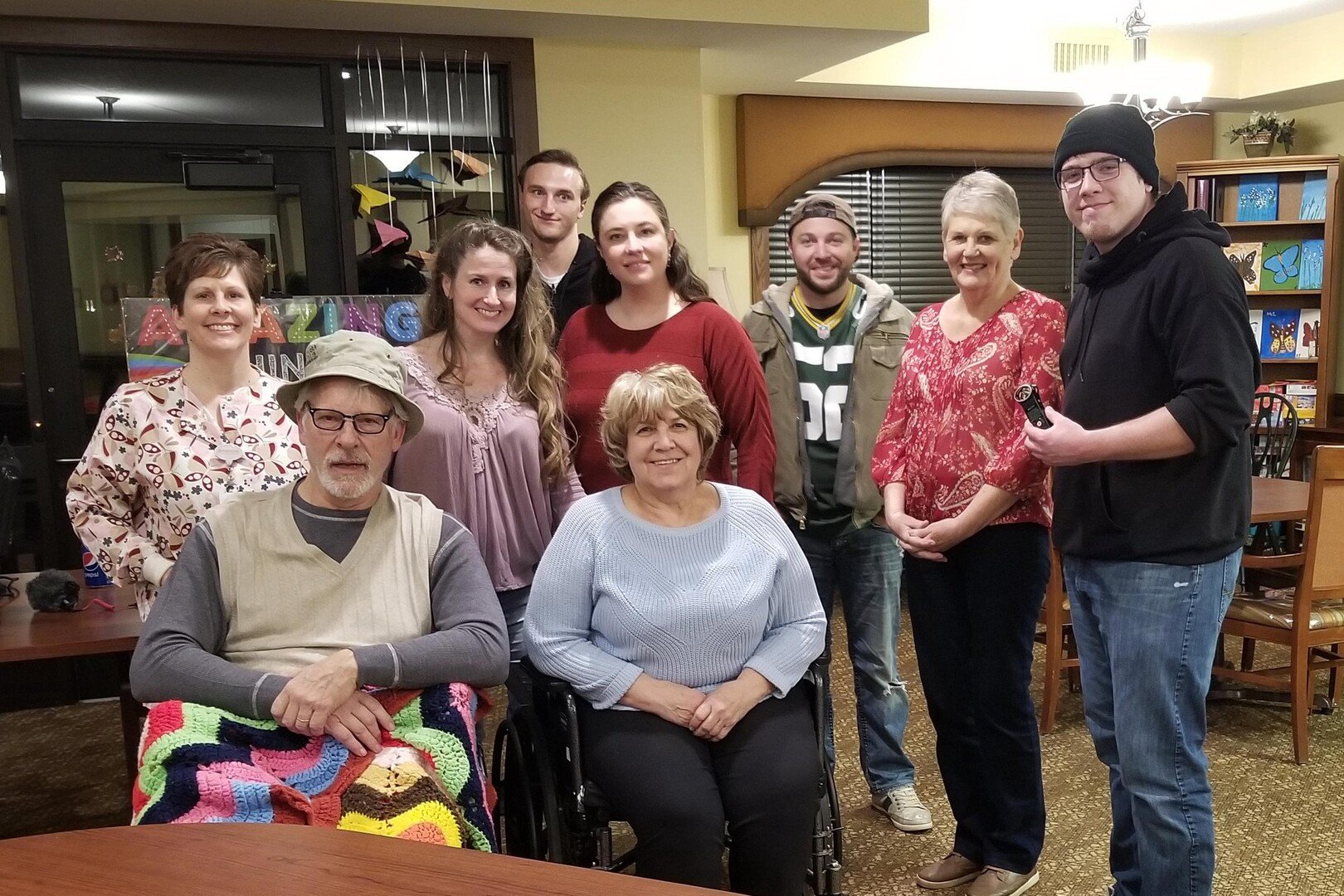Interview with indie filmmaker Alex Suszko
Welcome Mr Suszko we are very excited to have you today with us to discuss about your work.
First off, Who is Alex Suszko and how did the passion for screenwriting start ?
I am a filmmaker from Stillwater, Minnesota, USA. I have always had a passion for film, first as a viewer but subsequently as a maker. My first serious introduction to cinema came in the form of the earliest silent era films that my father exposed me to when I was very young. This ingrained in me the understanding of what cinema truly has the power to be.
It wasn’t until around 18 years old that I committed myself towards making my own movies and trying to bring my own ideas to life through the film medium. I attended college at the University of Wisconsin-Milwaukee which has a film program that focuses more heavily on experimental film. While I can promise I wasn’t any professor’s favorite student, I’ll never deny the impact they had on expanding my cinematic range to new areas I was previously unfamiliar with.
It was there that I came to understand that in cinema, one doesn’t need a big budget or all of the resources in the world to create something insightful, profound, and engaging.
After making numerous short films, I wrote the screenplay for Dolwa and after an unsuccessful year of trying to sell it, I opted to self-fund and make it myself.
Talk to us about your film. What inspired it ?
The inspiration for Dolwa came really from two places. The first, was just philosophical musings that I was thinking about at the time of writing. The idea that total strangers can have an intrinsic existential interconnectivity was a thought that I found fascinating. When I would meet new people, I would often ask myself, ‘how many times had I passed by this person and only now just engaged with them?’. These thoughts become the catalyst for the fundamental premise of Dolwa. The second source of inspiration was, of course, in the movies throughout cinema history that have had a profound impact on myself. My favorite film of all-time is Ingmar Bergman’s Persona and while the depths of that film are endless, the general theme of the perception of identity, both by oneself and by others and the overarching thinking on peoples’ place in the world were elements that I knew I wanted to incorporate into Dolwa.
CONVERSATION ABOUT: Dolwa
What is the philosophical and spiritual goal of your work ?
Playing off some elements of my previous answers, I think that self-identity is one of the big philosophical ideas that I’m exploring in Dolwa. Can people truly understand themselves and, if so, can it only be in relation to others? Another prominent question I was aiming to explore was how intangible factors like ‘fate’ play a role in the limits of our ability to direct our own lives and paths. All three of the main characters do their best to set their life on the ideal path and yet some inherent force of nature is hindering their power to do so. To that end, I wanted to explore the options humans have in reckoning with their existential powerlessness. Some may find solace in the belief in a higher power, some will accept life’s blows as just a sad reality to push through and some may decide that if we can’t dictate the direction of our own lives then it’s not a life worth living. We see all of these different conclusions reflected in the decisions of the main characters near the end.
Talk to us about our characters,Jessica, Kathy and Eleanor. Who are they and what is their connection?
It may seem like a non-answer, but the fact is that human connection is frequently undefined. Can we truly put definitions to the bonds that we experience with others naturally? Perhaps not to a definitive end. That said, the connecting thread between the 3 women is that they all lose what, presently, is most important to them. Jessica loses career prospects, Kathy loses her son, and Eleanor loses her relationship with her daughters. In a vacuum, we would say that the spectrum of severity between these losses is far-reaching yet on an ideological level, they are the exact same. Losing a son is a far greater consequence than losing a job opportunity, but the unspoken bond goes beyond the specifics of each character’s dilemma to be more about the existential changes and perspectives that are learned from each one’s consequence. The final twenty minutes of the film presents the idea that such a bond transcends time and space. It’s universal. Even in a different timeline where the characters have taken different paths in life, that bond of loss and existential defeatism persists. I wanted these characters to experience things in their life that make their experience relatable to the audience. Mundane activities such as dropping their child off at school or grabbing a drink at a bar are being presented because they are active parts of the human experience. These characters are supposed to be reflections of real-life and real experiences.
What would you describe as your directing identity style ?
There were very deliberate stylistic choices that I made going in that I wanted to use to subvert the standard approach to a scene. Perhaps the most glaring choice is in the lighting. I wanted to use garish lights, often visible in the shots themselves as a means of creating a kind of Brecht-ian self-awareness. These characters are on a stage for the looming presence of Dolwa and I intended the audience to inherit that omniscient perspective as well through the use of lights. Another technique that I wanted to use prominently was extreme close-ups. These are characters that are fighting with their own vulnerability and I wanted to present them to the audience in an uncomfortably close way where we can see in the nuances of their expressions and emotions that wall of vulnerability cracking. While the lighting was a project-specific technique, the extreme close-ups are a technique that I have adopted into almost everything I make. My goal as a Director is to always make something singular, even when it’s not the most audience-friendly choice and oftentimes that requires experimentation with new tactics.
Are the characters based on actual people and is there any hidden symbolism in your work ?
The characters aren’t based on any real people in particular, though, certainly what they go through are experiences that I’ve observed in others’ lives or sometimes in my own. There is quite a lot of symbolism in the film with the most obvious being Dolwa itself. Dolwa is symbolic of the inherent forces in nature that we’re powerless to stop. Other symbols in the film are the lights that are often seen in the camera shots themselves. The lights represent moments of optimistic hope for the characters but the saturated and changing colors imply an unpredictability and frailty to those hopes. Another symbol is in the character of Aps, played by myself. He is symbolic of the moments we encounter in our lives that force us to reckon with the weaknesses that make us vulnerable and the limitation of our environmental control.
What is the target audience of your project ?
The target audience is mostly adults seeking cinema that is more experiential than conventional narrative or entertainment. I wanted to incorporate a lot of thought-provoking elements and philosophical musings in the film as a means of inviting the audience to partake in the exploration of those ideas. Certainly audiences seeking a more cerebral, at times, experimental form of cinema are likely to enjoy themselves more than the general, mainstream audience.
What is the message the audience should convey leaving the screening of your film ?
I’ve always had an ambivalent relationship with the term “message” as it pertains to art. I’ve always held the position that a fundamental aspect of art is the humility on behalf of the artist to recognize that they aren’t the supreme authority on matters of the human condition. Art is created to explore ideas of which there cannot be a definitive answer. In this way, Dolwa is not aiming to deliver a message per se, but rather present an invitation to the audience to explore the ideas contained in the film. It asks the audience to reflect on their own place in the world and how their experiences may relate to others. It invites them to think about the idea of a universal identity, whereby we are all connected through the human experience. It encourages audiences to engage with the film on a subjective level whereby a personal interpretation can be drawn.
Any future projects incoming ? Along with personal aspirations.
I do have some very exciting projects in the works. I am working on editing my second feature film right now which is very experimental in nature. I expect that some audiences will find their patience tested, but others will see it as a valuable exercise in cinematic form. There’ll be more to come on that though as I finish it up.
That was the interview with our beloved creator Alex Suszko. Our community is rising everyday, new talented filmakers and screenwriters get onboard. Be sure to check the rest of our interviews and why not schedule one for yourself to promote your work. To publish an interview simply submit on the INTERVIEW OF YOUR FILM category on our Filmfreeway page.







